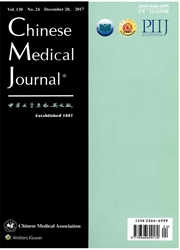

 中文摘要:
中文摘要:
血管性痴呆是指脑组织损害基础上产生的以高级神经认知功能障碍为主的一组临床综合征?是导致老年痴呆的第2 位原因?但其确切的发病机制目前还不明确? 进一步明确与血管性痴呆病因相关的危险因素并深入探讨其分子机制和遗传机制?以转化医学为突破口?推进对脑血管病的研究和发展?对该病的临床预防和治疗具有重要意义.
 英文摘要:
英文摘要:
Vascular dementia (VD) is characterized by histopathological damage and pro-gressive intellectual decline produced by cerebral ischemic hypoxia or hemorrhagic lesion.VD is the second most common form of dementia after Alzheimer’s disease and its incidence is increasing with aging.It is generally accepted that brain ischemia-hypoxia is the main cause of VD, but the exact pathogenic mechanisms of VD is still not clearly demonstrated .Therefore, further confirming the eti-ology for VD and exploring the molecular and genetic mechanisms underlying have great significance for the diagnosis, prevention and treatment of VD in translational medicine.
 同期刊论文项目
同期刊论文项目
 同项目期刊论文
同项目期刊论文
 期刊信息
期刊信息
